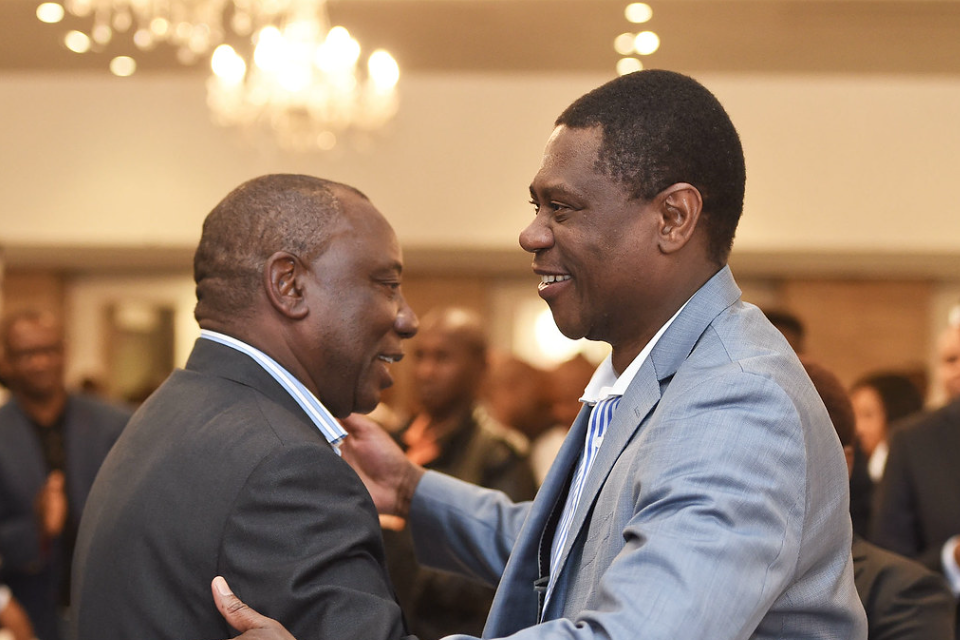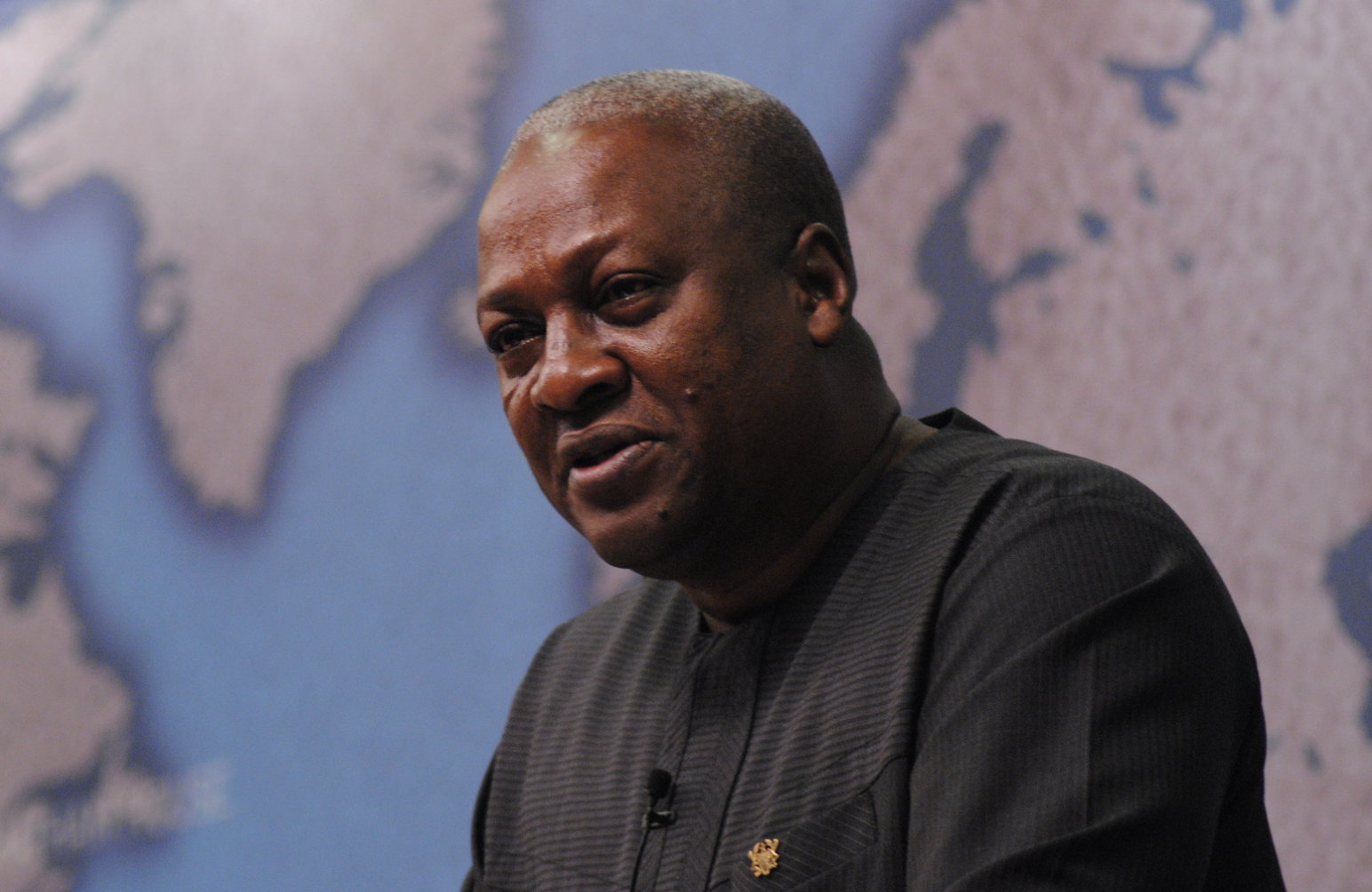News
South Africa’s Burning Question — Can the Centrist Glue Hold the GNU Together?
The temptation among some in opposition to ‘go it alone’ and abandon the GNU project runs the risk of a surgent populist coalition governing the country.

Research Director, The Brenthurst Foundation

Director, The Brenthurst Foundation

The broad consensus is that South Africa has turned the corner with the Government of National Unity (GNU). But the political clock is ticking and South Africa’s next day of reckoning is loading.
In just two years and 10 months, President Cyril Ramaphosa will be replaced as ANC president at its congress in December 2027. He will still have two years to serve out in his second term, but history is not on his side.
No ANC president has served out their second term, with Jacob Zuma replacing Thabo Mbeki (with Kgalema Motlanthe as a caretaker) following the 2007 Polokwane conference and Ramaphosa replacing Jacob Zuma after the 2017 Nasrec conference.
Either way, Ramaphosa will be a spent force with rapidly diminishing political power after the 2027 conference.
What is frightening is how uncertain the post-Ramaphosa future looks. The party’s succession trajectory has never been less certain.
The man in pole position is Paul Mashatile, the deputy president of the ANC. All ANC presidents since Mandela — Mbeki, Motlanthe, Zuma (who was deputy president and then president of the party on his comeback) and Ramaphosa — were previously deputy presidents.
But Mashatile lacks the stature of his predecessors and has been haunted by scandals which call into question his probity. However, he was one of a handful of ANC leaders who spoke out publicly against the corrupt presidency of Zuma. As a result, he was removed as Gauteng premier by Zuma, who added humiliation by giving him the relatively junior post of deputy arts and culture minister.
Mashatile played a significant role in Ramaphosa’s campaign for the ANC presidency. Then treasurer-general of the party, he was its key fundraiser and therefore in a strong position within the leadership. This suggests that he will continue Ramaphosa’s centrist legacy — but it is not that simple.
Mashatile’s Gauteng base appears to have been eroded by Panyaza Lesufi, a strident populist who opposes the GNU. If Mashatile is in fact still in the Ramaphosa camp, he has been proven powerless to reverse this tide and the open rebellion against the president. Lesufi may be planning a bid for the presidency himself — or could be seeking to reunite the ANC with Zuma’s MK party to create a powerful populist front.
Will someone else — the effective Police Minister Senzo Mchunu, the clownish Secretary-General Fikile Mbalula, or the recidivist Minerals Minister Gwede Mantashe, for instance — step up and take the reins?
Mchunu apart, these and other ANC leadership options don’t promise a continuation of the centrist coalition that has taken shape under the GNU umbrella.
Slippery slope
In any event, the ANC is likely to continue on the slippery slope to electoral failure.
Before the 2027 conference, it will have to persuade voters to support it in local government elections. While the GNU may have stabilised the ship of state at the national level, metros and local governments continue to deteriorate, with service delivery slowing down.
In Johannesburg, chaotic city politics engineered by the ANC have all but destroyed the capacity to deliver, and water shortages, maintenance failures and poor roads continue to blight daily lives.
This adds more fuel to the fire of uncertainty. Should the ANC show a sharp decline in support in local elections, Ramaphosa is likely to become more of a target as his party leaders see their political futures vanishing.
Ramaphosa also does not have the traditional “liberation movement option” of amending the Constitution to allow him a third term due to the ANC’s parliamentary minority.
The ANC has also entered uncharted electoral territory. After falling to 40.2% of the vote in the 2024 election, it no longer enjoys the dominance over this trajectory that it once did.
Several opposition players — the DA, MK, the EFF and the IFP — now have more influence and can alter the political trajectory in ways that were not possible under a consistent ANC majority.
But opposition politics is beset by its own uncertainties.
Will the MK party continue its trajectory and take KwaZulu-Natal in the local elections? Or will it fizzle out as a resurgent IFP, infighting and dictatorial leadership take their toll?
Will voters reward the DA for its decision to join the GNU and appreciate the efforts made by some of its ministers to bring a new action-oriented approach to delivery? Or will old loyalties prevail and continue to impose a ceiling on its support?
These are not foregone conclusions, and the future of the opposition is in its own hands. How it maps out clear goals and strategies to match in the portfolios it holds and delivers on these with effective communication will determine not only its fate but also that of the GNU.
The temptation among some in opposition to “go it alone” and abandon the GNU project runs the risk of a surgent populist coalition governing SA. It will strip the country of its fiscal and financial credibility and sever its ties with its traditional trading partners in favour of ideological window dressing.
The failure of the GNU is now South Africa’s most deadly threat. It will require ordinary South Africans to safeguard its future.
This article originally appeared on the Daily Maverick


